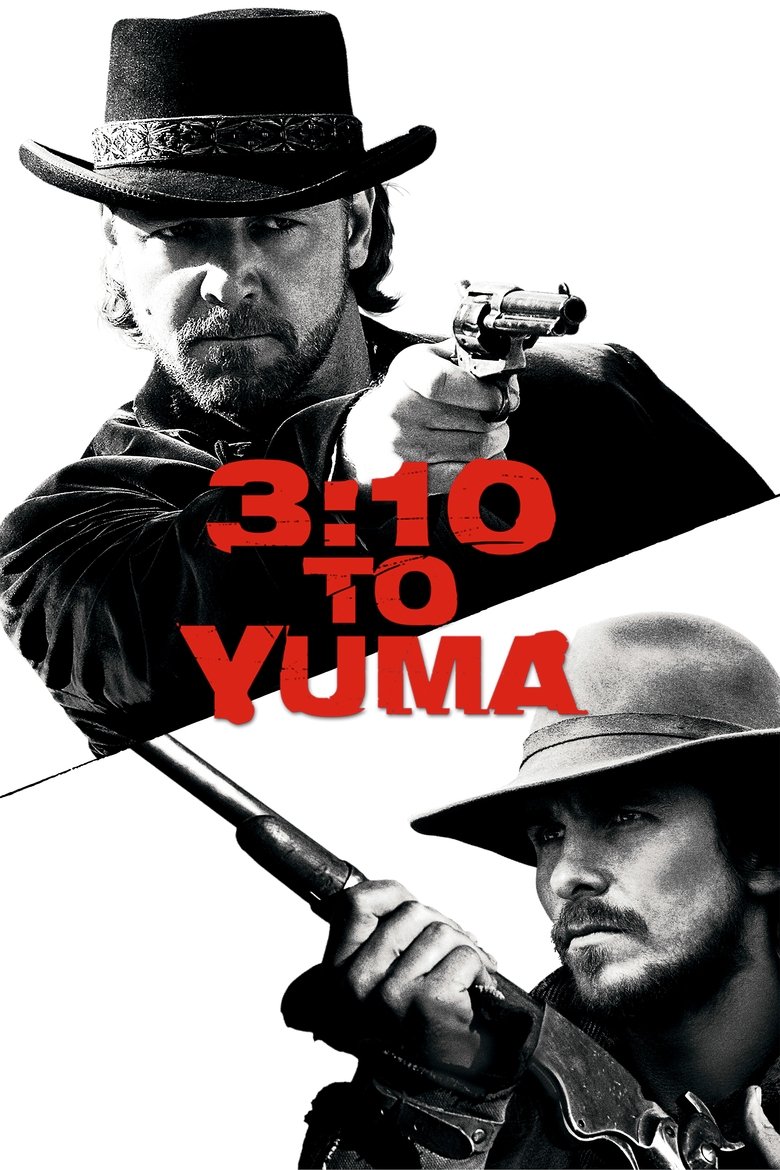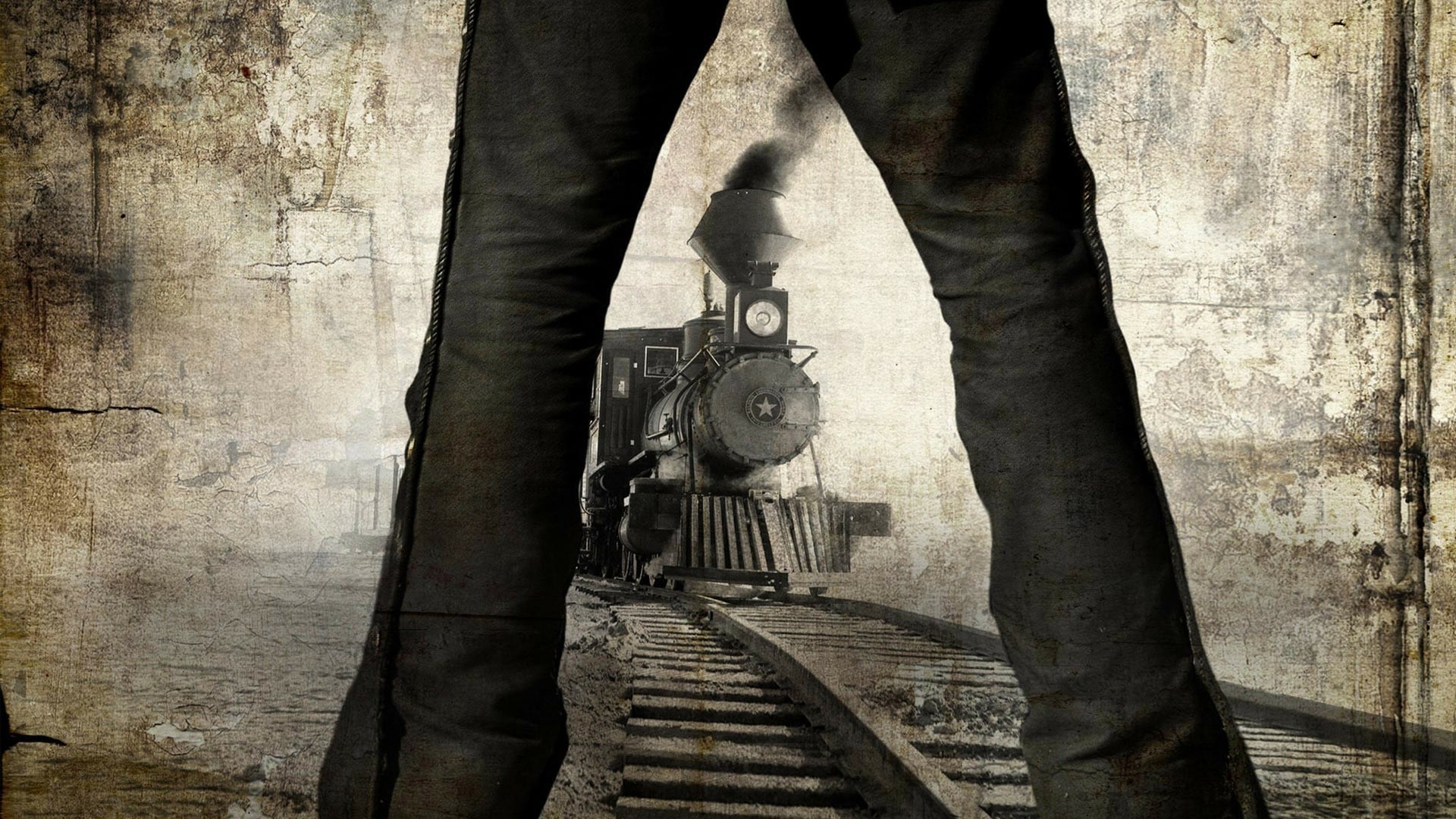The price of redemption -- READ THIS if you had problems with the ending
This remake involves the capture of a notorious outlaw, Ben Wade (Russell Crowe), who is then escorted to the town of Contention to await the train to Yuma, where he'll be hanged. A desperate rancher, Dan Evans (Christian Bale), hires on for the escort job because he needs the $200 for his family to survive. Wade plays psychological games the entire time trying to corrupt Evans, but things turn out differently.
The cast is outstanding (which also features the beautiful Gretchen Mol and Peter Fonda), the New Mexican locations are great and the score ranks with the all-time best. Most importantly the picture is engaging throughout its 2 hour runtime, not to mention the story gives the viewer a lot to chew on.
The first hour of the film is realistic but what turned me off during my initial viewing was the second hour's mounting implausibilities. Thankfully, most of these can be explained.
One issue is when a man burns to death locked in a wagon carriage. The quibble is that he doesn't scream enough in fiery torment. But watch the scene and you'll clearly hear him yelling in the background. Evan's loss of a limp at the climax is more of an issue, although this can be explained by an adrenaline rush.
One problem I had was that Ben Wade (Crowe) came off as super-human. There was seemingly nothing he couldn't do, even while handcuffed. I suppose this could be explained by the fact that there ARE people who are incredibly gifted to the point of being nigh super-human.
In any event, this is not a realistic Western like, say, "Wyatt Earp" or "The Long Riders." No, "3:10 to Yuma" is a MYTHIC Western with an potent message. If you can't handle strong mythic elements in Westerns look elsewhere.
When I first saw the film I didn't get the ending and it turned me off. But it was clear that there was more to the picture than what first meets the eye so I decided to view it again. It DOES make sense, it's just that you might miss it on your initial viewing because the events flash by so quickly. When you DO see it, it'll blow you away.
***SPOILER ALERT*** DO NOT READ FURTHER UNLESS YOU WANT AN EXPLANATION OF THE FILM!
Wade is a confident and talented man who smugly looks down on others, acting like a disciple of Nietzsche who has no moral obligation to anyone, least of all God. He senses simple purity in Evans and plays the role of tempter, trying to corrupt Evans and win him to his way of thinking. But as they wait in the hotel room it is Evans who "converts" Wade, in a sense. Evans doesn't accomplish this in any type of contrived manner, he accomplishes it simply by being WHO HE IS -- an undefiled, courageous family man who stubbornly refuses to give up on hope, faith, life, righteousness and family.
As they're waiting, Wade sketches a picture of Evans in a book. It is later shown that this sketch was made on an opening page of a Bible. This reveals that Wade came to view Evans as a Christ figure, at least subconsciously, and that Evans is clearly a type of Christ in the story.
What exactly was it that caused Wade to "convert" and support Evans? (1.) He saw in Evans a man that refused to be bought -- a man who refused to be corrupted by filthy lucre, which was something he never experienced before. (2.) Evan's son insisted that there was still some good in Wade despite his wicked history. Regardless of Wade's denial, the kid was right. The idea that SOMEONE saw a glimmer of good in him, that SOMEONE out there BELIEVED in him despite his past evil deeds ultimately moved him and compelled him to support Evans. (3.) Wade turned evil because he was abandoned as a kid. He saw in Evans and his wife a REAL family -- parents who stayed together and refused to abandon faith, hope, righteousness and family come hell or high water. He became convinced that Evans and his family were worth supporting, even perhaps dying for. (4.) Evans made a deal with the Pinkerton that if he successfully got Wade to the train the Pinkerton would make sure Evans' family got $1000, which would bail them out of their hardships. Wade wanted to make sure the family got that money. Somewhere deep inside he wanted to redeem himself of his wicked past and this was the opportunity. This could be the beginning of a new life.
(5.) Wade's relationship with Evans lasted only a few days but he found something that was missing in all his other relationships - a friendship based on respect rather than familiarity or shared events. Great friendships like this can happen quickly similar to love-at-first-sight. Such relationships are conducive to transparency, which explains why Evans reveals to Wade the real reason he lost his leg in the war.
After Evan's brutal death Wade has an even greater revelation: To see a truly undefiled man -- a simple but GREAT man -- murdered by a group of immoral swine fills him with disgust. You can see it on his face. Yes, he should be thankful that his men remained loyal to him but this was about their only redeeming quality. To truly start a new life he would have to be judge and executioner of the corrupted souls who would pull him back down into the slime.
Why did Evans have to die? Because redemption can only be paid via the spilling of blood. It was the price for Wade to live and have a new life.
GRADE: A





